Faculty of Media and Communication
Research Seminar Series 2016-17
A Conflict, Rule of Law and Society
Research Seminar
Venue: F309, Fusion Building, Talbot Campus, Bournemouth University, Fern Barrow, Poole, Dorset, BH12 5BB
Wednesday 12 October 2016 at 4pm
Conflict, Rule of Law and Society Welcomes:
Prof Geoffrey Samuel, University of Kent
The Paradigm Case: Is Reasoning and Writing in Film Studies Comparable To (or With) Reasoning and Writing in Law?
To what extent can theories or models that have been developed by literary and film theorists inform legal knowledge? Can any such literary and film models offer any serious insights to legal epistemology or are such ‘borrowings’ likely to remain at best rather superficial? The purpose of this contribution is to suggest that there are a number of theories – or at least models – that can prove quite fruitful for lawyers. Three, in particular, will be examined: namely personification theory, representation theory and reception theory. Personification theory is concerned with the notion of persona in cinema, theatre and literature and reflects, in particular, on the relevance of identity in films like Vertigo (1958) and Phoenix (2014). Persona, of course, is both a literary and a legal concept and so there is, however tenuous, a direct conceptual connection. Representation theory (see Bacon extract overleaf) has already had some impact on law – it can be seen as an aspect of fiction theory (see Vaihinger) – and this impact might be revived with the publication of a recent work by Professor Mathieu. Reception theory (see Dzialo overleaf) is more closely associated with hermeneutics which of course as a scheme of intelligibility has attracted much attention from jurists. Nevertheless the categories of text developed by Stagier have, perhaps, a particular reference for the jurist: what is the relationship between legal texts and their readers and does this relationship vary according to the nature of the text in question? One further point will be developed with respect to these theories or models mentioned. Perhaps labelling them as ‘theories’ or ‘methods’ is unhelpful; a more fruitful label might be one mentioned by Bouriau in his examination of Vaihinger’s ‘as if’ (comme si) fiction theory. It is not so much a theory; it is more of an ‘epistemological attitude’ (attitude épistémique).
Geoffrey Samuel Born in 1947 in England, Geoffrey Samuel is currently a Professor of Law at the University of Kent and a Professor affilié at the École de droit, Sciences Po, Paris. He received his legal education at the University of Cambridge and holds doctoral degrees from the Universities of Cambridge, Maastricht and Nancy 2 (honoris causa). He has also held many visiting posts in France, Belgium and Switzerland and is still a visiting professor in Rome (Tor Vergata), Fribourg and Aix-en-Provence. Geoffrey Samuel is the author of many books on contract, tort, remedies, legal reasoning and legal epistemology, the most recent being An Introduction to Comparative Law Theory and Method (Hart, 2014) and A Short Introduction to Judging and to Legal Reasoning (Edward Elgar, 2016). His areas of specialisation are the law of obligations, comparative law and legal reasoning.
All are welcome and we look forward to seeing you there!
About the series
This new seminar series showcases current research across different disciplines and approaches within the Faculty of Media and Communication at BU. The research seminars include invited speakers in the fields of journalism, politics, narrative studies, media, communication and marketing studies. The aim is to celebrate the diversity of research across departments in the faculty and also generate dialogue and discussion between those areas of research.
Contributions include speakers on behalf of
The Centre for Politics and Media Research
Promotional Cultures and Communication Centre
Centre for Public Relations Research and Professional Practice
Centre for the Study of Journalism, Culture and Community (JRG and NRG)
Centre for Intellectual Property Policy & Management
Conflict, Rule of Law and Society
EMERGE
Centre for Film and Television
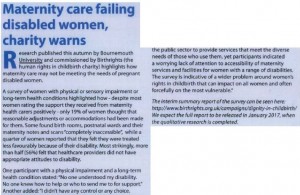 The study ‘Human rights and dignities: Experience of disabled women during pregnancy, childbirth and early parenting’ appeared under the heading ‘Maternity care failing disabled women, charity warns’ in the Journal of Family Health. The charity in question is Birthrights which funded the survey of women with physical or sensory impairment or long-term health conditions and their maternity care experiences. The research was conducted by midwifery researchers Jenny Hall, Jillian Ireland and Vanora Hundley at Bournemouth University and occupational therapist Bethan Collins, at the University of Liverpool.
The study ‘Human rights and dignities: Experience of disabled women during pregnancy, childbirth and early parenting’ appeared under the heading ‘Maternity care failing disabled women, charity warns’ in the Journal of Family Health. The charity in question is Birthrights which funded the survey of women with physical or sensory impairment or long-term health conditions and their maternity care experiences. The research was conducted by midwifery researchers Jenny Hall, Jillian Ireland and Vanora Hundley at Bournemouth University and occupational therapist Bethan Collins, at the University of Liverpool.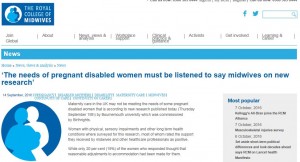 Last month this important study had already been reported by the Royal College of Midwives (RCM) on their webpages (click here to read more). On the RCM website Louise Silverton Director for Midwifery at the RCM said: “It is deeply disappointing to hear that women with disabilities are not getting the maternity care they need and deserve. Although this is only a small survey, it does provide a very valuable insight into the realties of the care these women have received while pregnant. The RCM believes that maternity services should treat disabled women like every other woman, while ensuring that the care provided does not ignore or overreact to their specific wishes and aspirations.”
Last month this important study had already been reported by the Royal College of Midwives (RCM) on their webpages (click here to read more). On the RCM website Louise Silverton Director for Midwifery at the RCM said: “It is deeply disappointing to hear that women with disabilities are not getting the maternity care they need and deserve. Although this is only a small survey, it does provide a very valuable insight into the realties of the care these women have received while pregnant. The RCM believes that maternity services should treat disabled women like every other woman, while ensuring that the care provided does not ignore or overreact to their specific wishes and aspirations.”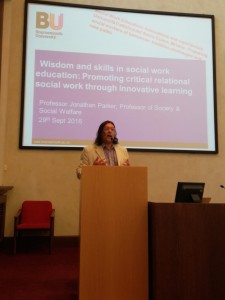
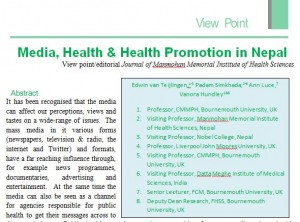

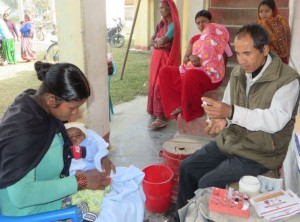
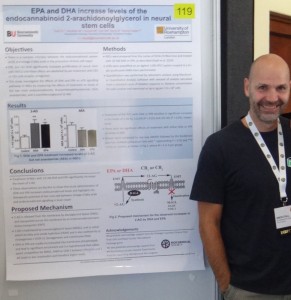


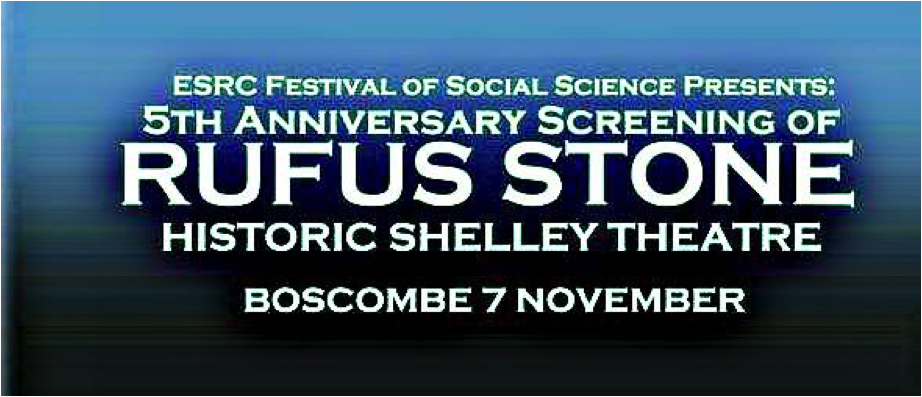

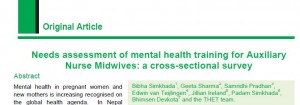

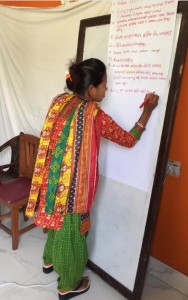
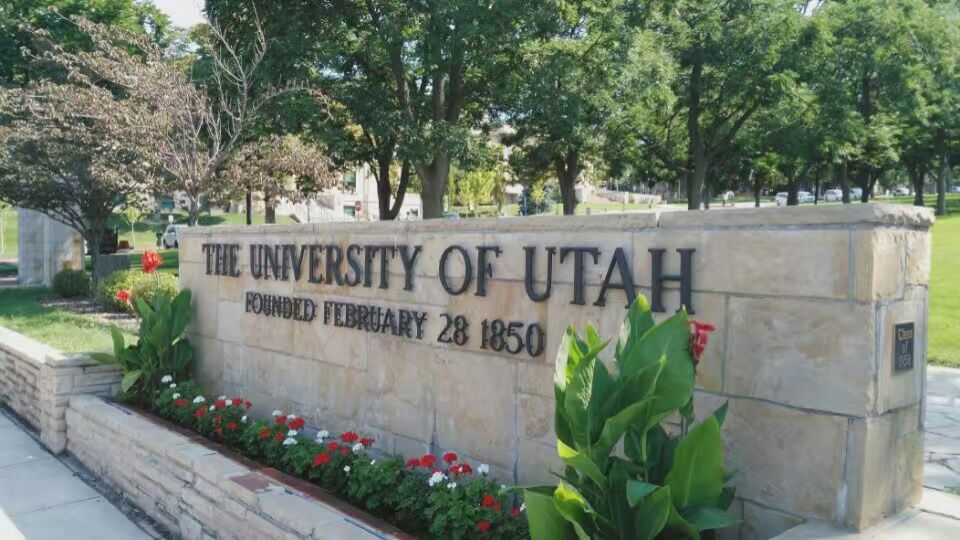
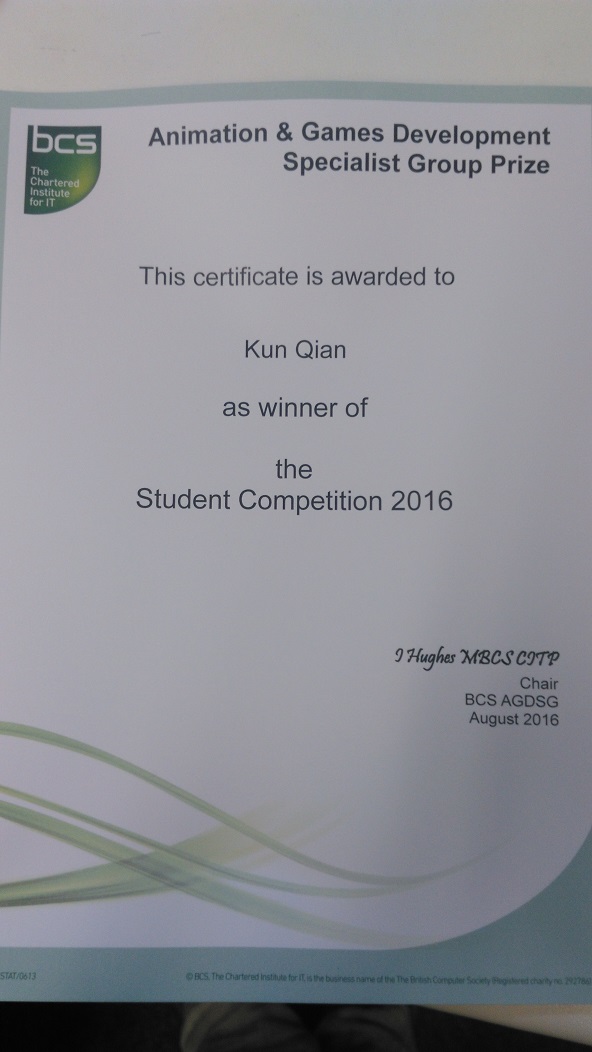

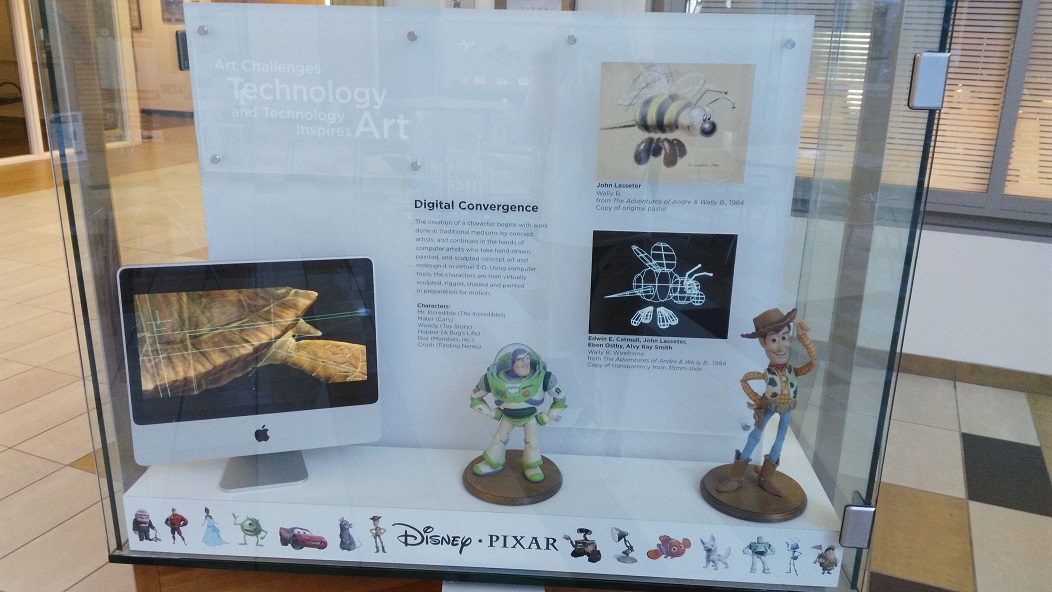
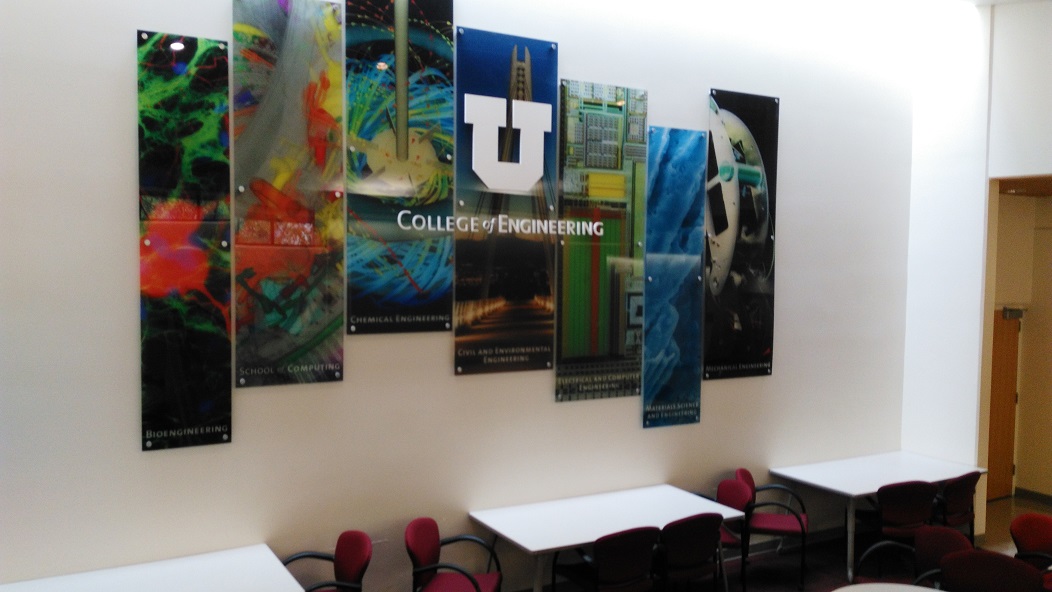
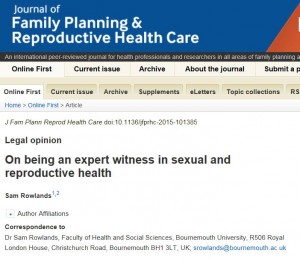
 On Tuesday 4th October 2016 we will be joined by Lindy Holden-Dye, who is a Professor of Neuroscience at the University of Southampton.
On Tuesday 4th October 2016 we will be joined by Lindy Holden-Dye, who is a Professor of Neuroscience at the University of Southampton.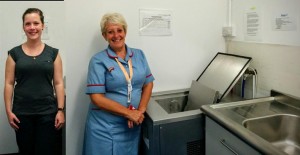 Most of you have probably heard/read about human milk banking by now from me or my previous posts, if not read
Most of you have probably heard/read about human milk banking by now from me or my previous posts, if not read 
 If you would like to find out more about human milk banking in the UK or want to become a human milk donor visit the UK Association for Milk Banking website at
If you would like to find out more about human milk banking in the UK or want to become a human milk donor visit the UK Association for Milk Banking website at 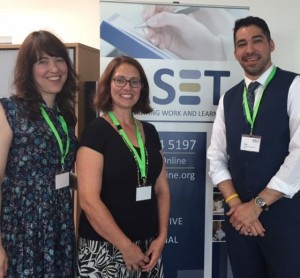 At the recent annual ASET AGM and Conference at the University of York, FMC Placement Advisor and CEMP doctoral student Vianna Renaud was elected onto the Trustee board of the organisation. As the professional association for work based and placement learning in HE within the UK, this will help ensure that BU will continue to be at the forefront of the sector.
At the recent annual ASET AGM and Conference at the University of York, FMC Placement Advisor and CEMP doctoral student Vianna Renaud was elected onto the Trustee board of the organisation. As the professional association for work based and placement learning in HE within the UK, this will help ensure that BU will continue to be at the forefront of the sector.
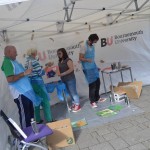











 April’s Café Scientifique – Should we help machines understand and respond to our emotions?
April’s Café Scientifique – Should we help machines understand and respond to our emotions? Postgraduate Research Experience Survey (PRES) 2024 – 2 WEEKS LEFT
Postgraduate Research Experience Survey (PRES) 2024 – 2 WEEKS LEFT Working with The Conversation: online training session – Wednesday 8th May
Working with The Conversation: online training session – Wednesday 8th May Apply for up to £1,000 to deliver an event and take part in a national festival of public engagement with research
Apply for up to £1,000 to deliver an event and take part in a national festival of public engagement with research MSCA Postdoctoral Fellowships 2024
MSCA Postdoctoral Fellowships 2024 Horizon Europe News – December 2023
Horizon Europe News – December 2023